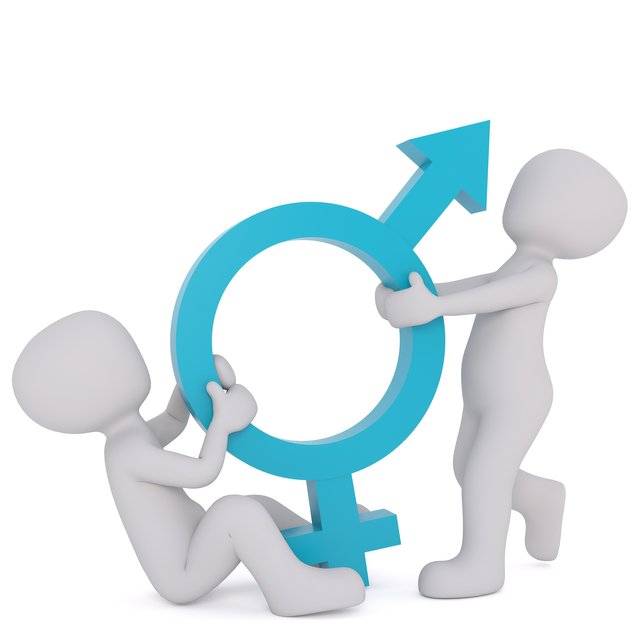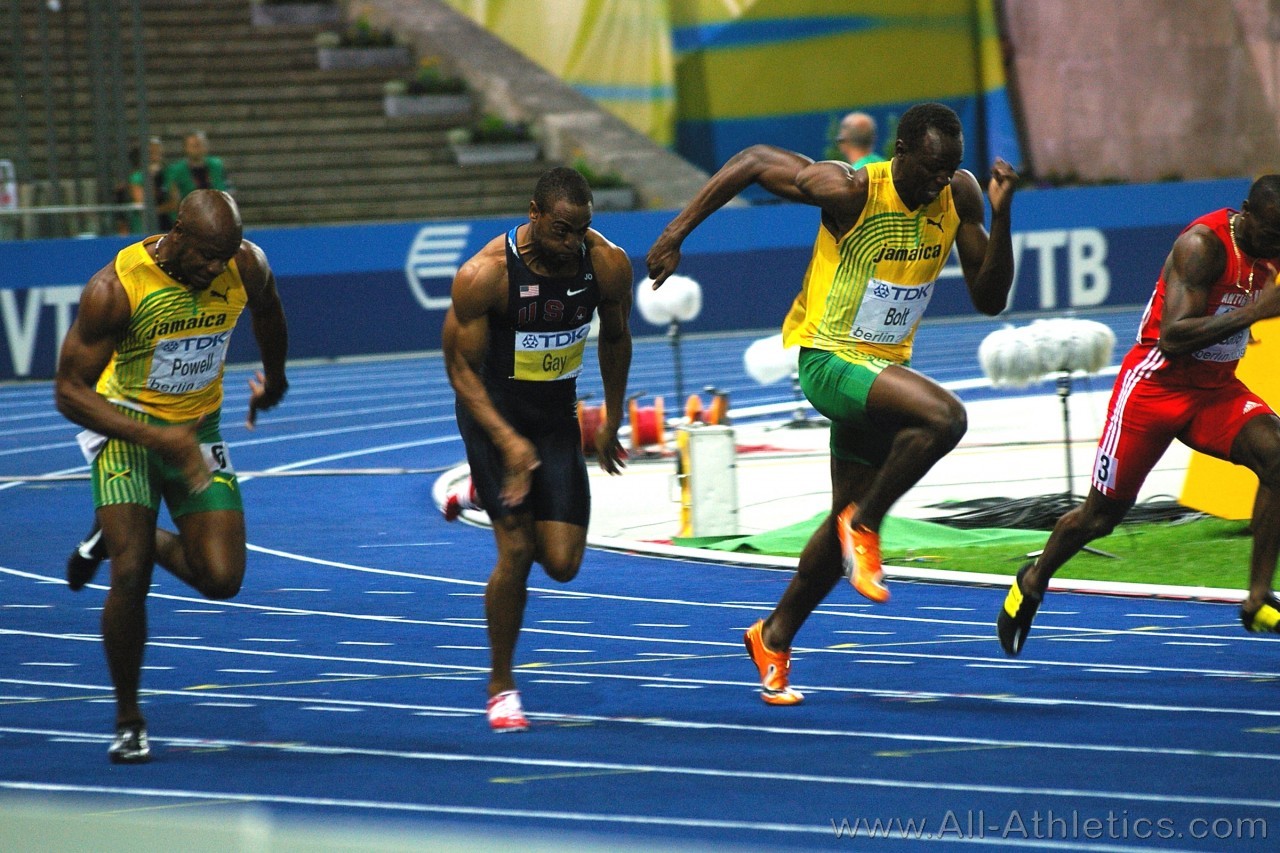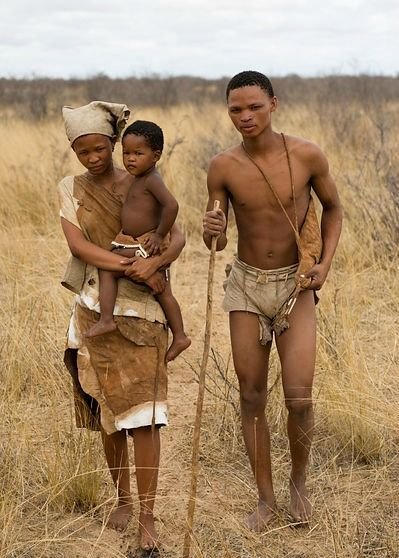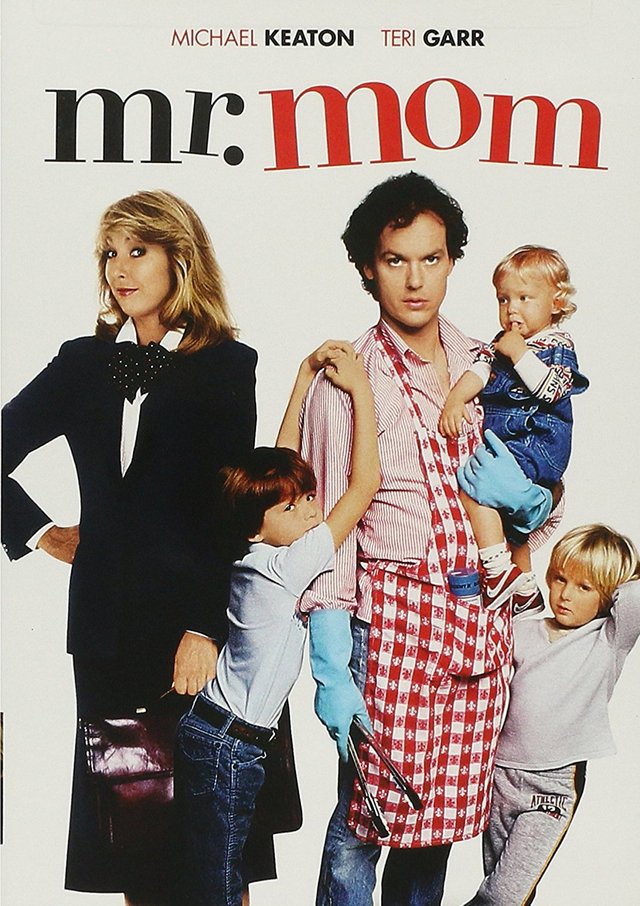Gender Confusion
Having read recent posts by @kyriacos about transgender issues and by @lukestokes about the role of women in society I was struck by a contradiction. So let’s walk through my thought process together.
Women and Men, because of variations in hormone levels, develop differently. Although these hormone levels definitely occur on a spectrum with some overlap, and while there are hormone receptor variations that infrequently lead to intersex conditions, per the Intersex Society of North America when these are all added together, the
Total number of people whose bodies differ from standard male or female
is around 1 in 100, or 1% of the population. In other words — enough to be recognizable as an entity, but not enough to significantly affect the course of societal development with regards to the roles of women and men.
That men and women have different physical capabilities should not be controversial (although these days it apparently is), but to illustrate the difference, the world record for the men’s 100 meter dash is 9.58 seconds, set by Usain Bolt in 2009. The women’s record for the 100 meter dash is 10.49 seconds, set in 1988 by Florence Griffith-Joyner.
To put this into perspective, the final of the men’s 100 meter dash in the 2009 Berlin world championships consisted of 8 men. The last place finisher in that final, Darvis Patton from the United States, finished in 10.34 seconds — which means that had the fastest woman runner in the last 30 years been in that race, she would have still come in dead last by a fair bit.
Certainly men and women both continue to get faster in sports. But the ratio between men’s and women’s records has stayed stable at about 0.9 for decades and is not changing.
Now, lest I be accused of putting men on some pedestal, I will hasten to add that there are studies that show that women are:
Given these differences in qualities and abilities, it is not surprising that men and women have evolved different societal roles. The men have gravitated towards the tasks that require strength and speed, and women have gravitated towards positions that require more social skills and intelligence. Although the “men are interested in things and women are interested in people” difference has been scoffed at a lot and got a lot of flaming because of it’s mention in the recent google manifesto, Scott Alexander wrote a piece at Slatestarcodex that demonstrates how the science behind gender differences is deep and thorough.
His summary of the findings from a large meta analysis is that
…men will be more likely to choose jobs with objects, machines, systems, and danger; women will be more likely to choose jobs with people, talking, helping, children, and animals.
Gender versus Sex
And, over the thousands of years of recorded human history, that is pretty much the way it has gone. Each half of the human species has done the job it is good at and depends on the other half to do the things it is less good at. Unfortunately, along this long and winding path, humans got confused about the nature of this specialization, and many if not most cultures forgot that anyone can do any job, forgot that specialization was due to average differences in ability rather than absolute correlation between sex and ability. Locked into a specific way of thinking by thousands of years of tradition, societies across the world produced a phenomenon separate from biological sex that indicated expectations of societal roles based on expectations of the capabilities of each biological sex, which today we call gender.
The Oxford dictionary defines gender as
Either of the two sexes (male and female), especially when considered with reference to social and cultural differences rather than biological ones. The term is also used more broadly to denote a range of identities that do not correspond to established ideas of male and female.
As society has become more mechanized over the last 200 years, strength and speed and size have become less important, and along with these advancements, society has relaxed its grip on the roles that each biological sex are allowed to do. Progressive types would like to believe that this is due to societal “advancement” or “progression” in the sense of society becoming better or more enlightened, and to be fair, there certainly has been some of this going on as well, as there was no previous biological reason for women to be blocked from voting, or owning property, or being considered head of household, or attending certain schools.
So we find ourselves today at a point in history where, thanks to a joint effort between technological advancement and societal enlightenment, women are considered capable of doing just about anything that men can do. And, according to popular culture, what it means to be a “Man” or a “Woman” is becoming increasingly fuzzy, vague, and difficult to pin down. Half of the country seems pretty sure that biologic sex predicts nothing more than a specific plumbing configuration. Or perhaps not even that -- Intersex conditions are the latest oppressed minority, and with the rise of awareness that biological sex might not be simply binary, in parallel we have seen the emergence of the idea that gender is something completely separate from biological sex, hence the emergence of the Transgender phenomenon.
But this is where I run into what seems to me to be a collision of logic. Let me use an analogy to explain it.
Let’s imagine that long ago, hair color was presumed to indicate something. Blondes were supposedly fun and pretty and stupid, brunettes were studious and quiet and smart, and redheads were hot tempered and unpredictable and crazy. And society, through repetition and expectations, pretty much boxed everyone into behaving like their hair color.
But then came — the hair dye revolution! Women suddenly could purchase, on their own and whenever they wanted, dye that magically turned them into any hair color they wanted. Women were no longer trapped in their biological hair color box — with hair dye, women who were biologically blond but “felt” brunette inside, could adopt a hair color that matched who they felt they were inside.
And as women were freed from the expectations that accompanied their hair color, society discovered that, in fact, their old presumptions about hair color and behavior were largely inaccurate. Blondes could be smart, brunettes pretty and crazy, and redheads quiet and studious. Hair color really had no predictive value about what a person was really like.
But here we run into a dilemma — if in fact hair color doesn’t really indicate anything about a person — if blondes are in fact not reliably fun and pretty and stupid — then how on earth could anyone know what it “feels” like to be a blonde on the inside? If “blonde” is in fact not a real combination of traits, then how can you feel like something that isn’t actually real?
Isn’t saying that blonde means nothing, but simultaneously that you “feel” blonde, really just trying to talk out of both sides of your mouth at the same time?
So to bring this back to sex and gender, if biological sex in fact has very little predictive value about who a person is, if being male or female isn’t really any one particular thing, then how on earth do you know what someone means when they say they “feel” male or "feel" female?
If your argument is that the categories are fallacious, arbitrary, erroneous and pretty much imaginary, then why on earth spend so much time and energy trying to convince everyone that you belong in another category? How can you argue that you "belong" in another gender without simultaneously adding support to the idea that this other gender is a real thing?
To be logically consistent, instead of trying to transplant people into other categories by trying to remember what pronouns they prefer, shouldn't we instead continue on the course of arguing that gender is a societal phenomenon and therefore irrelevant -- therefore it doesn't matter what pronouns we use?







This is certainly a topic that until recently I didn't spend any time looking into. The other day after making a post online and being bombarded with information i kind of wish i never even opened pandoras box. What once seemed like a simple topic has in recent years become very complicated and I'm left with more questions than answers most of the time.
I think a lot of us just don't understand it. From my perspective, I hear what is being said but it just doesn't make any sense to me.
I can relate. A guy was actually arguing with me that it would be a good thing to support a friend who might think they are a bird... i asked him wha t would happen if your friend that identifies as a bird jumps out of a 7th floor building? 😳 he still tried to justify his position. Logic is completely absent from some peoples arguments.
You might appreciate this post
I loved it! Thank you so much for sharing it with me. You write exceptionally well.
Two Genders?
I am getting downvoted for saying there are only 2 genders. Click here to see who is attacking me. I am being flagged for making this meme about Caren who was at GameStop on Friday, the 28th of December, 2018. The viral videos went all over the Internet. This post was downvoted for describing biology. Did you see that show on YouTube, the Radical Cram School (RCS) and what they do to little kids?